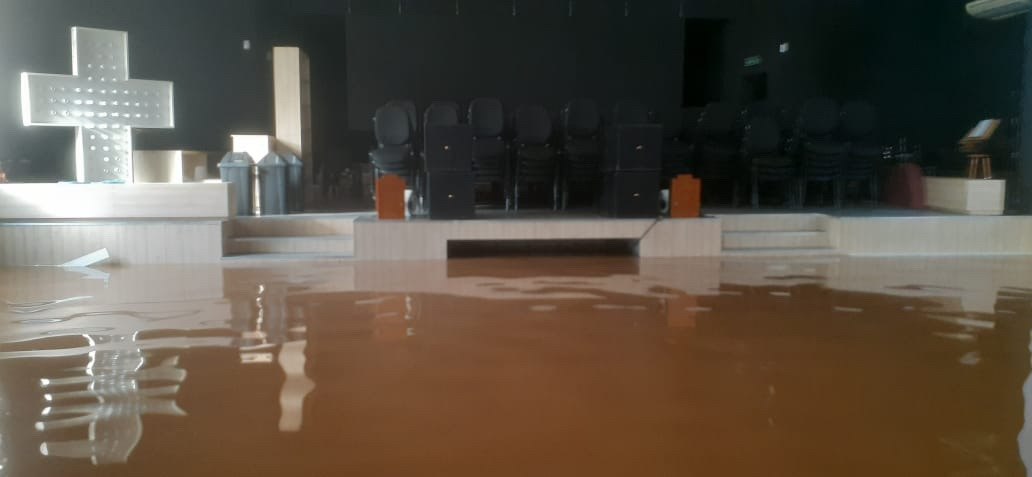We often associate these things with greed, insecurity, and a lack of spirituality. This is why, before we consider how to build wealth while being a missionary, it’s important to consider why it is biblical—and even possibly missions-positive—to build wealth.
The Bible cares about the financial stability of missionaries. We find proof for this in at least four places.
The Rationale
First, Jesus himself funded the missionaries he sent: “Then Jesus asked them, ‘When I sent you without purse, bag or sandals, did you lack anything?’ ‘Nothing,’ they answered” (Luke 22:35).
Second, Paul considered the Philippian church’s financial support of his ministry an offering to Christ. He says: “I have all I need and more, now that I have received your gifts from Epaphroditus. They are a sweet smelling aroma, an acceptable sacrifice, well-pleasing to God. And my God will supply all your needs according to His glorious riches in Christ Jesus” (Phil. 4:18-19).
Third, Paul himself worked as a tent maker because he cared about financial stability. If he considered poverty a virtue, why didn’t he beg on the street and minister as an Apostle? While ministering with Priscilla and Aquila, “because he was of the same trade he stayed with them and worked, for they were tentmakers by trade” (Acts 18:3).
Fourth, Paul values provision. You ought to provide for your family. This is a biblical command, and it doesn’t exclude missionaries. Paul writes to Timothy: “But if anyone does not provide for his relatives, and especially for members of his household, he has denied the faith and is worse than an unbeliever” (1 Timothy 5:8).
So how can missionaries build wealth in a godly way, with the right motives free from greed, without compromising the focus on their ministry on things of eternity?
Steps Towards Financial Stability As a Missionary
1. Go through the proper channels
What’s the difference between being a Christian traveler and a career missionary? The difference is this—one goes, and the other is sent. In order to have stability, which is the foundation of building wealth and retirement savings, it’s important to have a sending community to support you, pray for you, and give you guidance.
The two most important institutions to support your missions work are: (1) the local church, and (2) a missions agency, in that order. John writes:
“Beloved, it is a faithful thing you do in all your efforts for these brothers, strangers as they are, who testified to your love before the church. You will do well to send them on their journey in a manner worthy of God. For they have gone out for the sake of the name, accepting nothing from the Gentiles. Therefore we ought to support people like these, that we may be fellow workers for the truth” (3 John 5-8).
Note that John encourages the church to send those who are preaching the gospel “for the sake of the name.” For the sake of bearing witness to God’s care and concern for the wellbeing of missionaries.
2. Depend on your home church
The local church that sends you will give you the support you need to last on the mission field for the long haul. They will give you financial support. They will pray for you. Accountants in your congregation can advise you on financial planning, parenting, spending, and investing.
Your home church can help you to make wise financial decisions so that the money they do send you goes a long way for you and your family 30, 40, even 50 years down the road when you retire.
3. Serve through a healthy missions agency
A good, biblical, involved missions agency understands better than anyone else the best financial practices for missionaries. This is important. They will likely advise you to raise more than you require as a salary in order to cover costs, and to make sure that you’re not spending all of your salary on the missions work itself.
An agency will help you to pay the proper taxes, and some agencies even include health insurance and 401(k) programs to help you save for your life after missions—whether that’s 10 years from now or 50.
4. Raise enough support to save
Proverbs 13:22 (“a good man leaves an inheritance to his children’s children”) applies to vocational ministers and missionaries as well as to the ordinary Christ-follower. Not only that, but saving is just good financial sense. It’s a good idea to save three months’ expenses in case of emergency. If you haven’t raised enough money to save any money, then you’re not raising enough money.
Missionaries shouldn’t live paycheck to paycheck because no one should live paycheck to paycheck. Ideally, Christians should live below their means so that they can wisely save money in case emergencies strike.
5. Pay off your debt
Debt, particularly educational loans, is arguably the number-one reason why so few millennials are going to the unreached. Student debt is a noose. Pay off your debt as quickly as possible so that credit card and student loan companies don’t cannibalize the funds you raise.
Financial wisdom dictates that the sooner you are able to pay off all of your debt—including student loans—the better and more liberated you will be in your ministry.
6. Invest in your retirement
When you retire in your old age, you may want to work at a Starbucks in order to stay active. However, you may not want to. In order to be wise, you should invest in your something like a 401(k) or 403(b) so that when you are no longer to work full-time on the missions field, you have the time and resources to serve your local church and do ministry at home without raising funds.
Saving for retirement is the wisest way to make sure you have the resources to continue to serve and bless others when you are no longer able to earn a paycheck on the mission field due to age.
7. Stick to your budget
Sticking to your budget is one of the hardest things for anyone to do. But as a missionary, it’s important that you live below your means so that you keep your financial security in tact. It’s tempting to spend money getting your ministry off the ground—a new set of speakers for the church, a new set of Bibles for the pews, and a new Keurig machine for the church office. None of these things are bad, but these things should be taken care of through a missions budget separate from your personal budget.
Don’t spend more than you make and go into debt while on the missions field. Fundraise. Have an honest conversation with your supporting church if you need to raise a higher salary for some reason—medical issues, a new child, or growing ministry needs. But make sure that, at the core of your wealth-building endeavors, you are practicing personal discipline by sticking to your personal budget, which should be written to secure a stable financial future for you and your family.
Conclusion
Missionaries, like all believers, should be wise with their money. Building wealth doesn’t mean you must give way to greed or materialism; rather, building wealth is simply a way that you secure your ability to continue ministry after you retire—and it’s a way to ensure that your family doesn’t pay the price for a poor financial model offers up your personal and familial well-being at the altar of ministry.
ABWE exists to fulfill the Great Commission by multiplying leaders, churches, and missions movements among every people.





